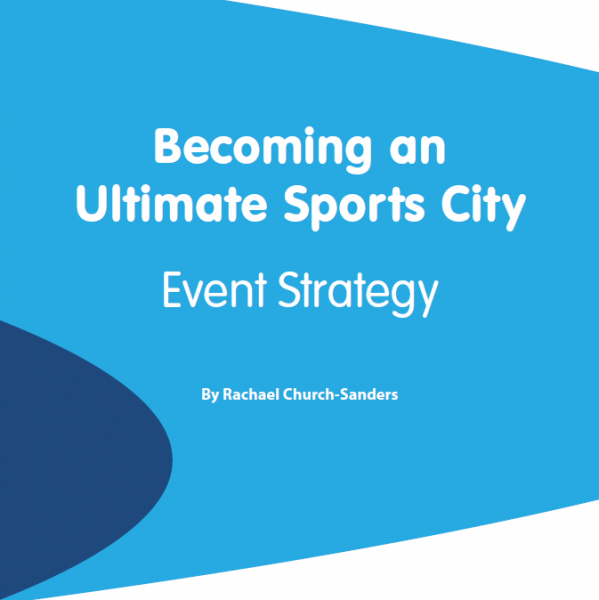Features
Identity Crisis?
The furore over the Washington Redskins’ name builds not only in the nation’s capital, but across the United States. However, the region has a precedent for name changes working out rather well.
The Leader: Brian Cookson
UCI (International Cycling Union) Brian Cookson writes for SportBusiness International about setting an example for other sports and making cycling safer for the average Joe.
Comment: August 2014
Kevin Roberts: Can ethics be the new rights-fees for football teams?
Growing Pains?
Rob Ridley speaks to Gérard Neveu, head of motor racing’s WEC (World Endurance Championship), about growth for the series after it was sanctioned for another three years in June.
Flying the Flag
Elisha Chauhan asks the OCA (Olympic Council of Asia) how it plans to make its flagship Asian Games more financially attractive to potential bidding cities from 2019 onwards.
A Family Affair
NASCAR CEO Brian France opens up about heading the family-run motor series, and outlines the challenges and opportunities the billion-dollar business faces in the near future.
The Magic of Monza
Elisha Chauhan asks Monza how it plans to reinvigorate the venue’s magic following Bernie Ecclestone’s threat to drop the historic track.
The Perfect Partnership
The Dallas Cowboys will move into a new headquarters in Frisco by 2016. Barry Wilner looks at how the set-up could be a best practice model for sports franchises looking to secure public funding for stadia and facilities.
Working Wireless
With free Wi-Fi now becoming an expectation for fans attending live sport, Elisha Chauhan asked leading Wi-Fi providers what venue operators should know before making their investment.
Trend It Like Beckham
Brazilian football player Neymar was cast in the lead role of this year’s World Cup before being cast in plaster following a back injury in the quarter-final. Owen Evans looks at whether the Barcelona superstar can now follow in David Beckham’s footsteps to commercial superstardom.
Unfinished Business
With a return to India imminent following a self-imposed four-year exile, Lalit Modi, the architect of the Indian Premier League (IPL), tells Matt Cutler his plans to shake up the business of cricket once again.
Communique: The Winds of Change
Owen Evans traveled to Turkmenbashi, Turkmenistan, in July.
New Spanish Era
In the space of a week in May, Atletico Madrid won Spanish football’s top-tier and was seconds away from a famous UEFA Champions League victory. Dermot Ledwith speaks to the club’s commercial director Javier Martinez about the challenges and opportunities in capitalising on the new success.
Infographic | Know The Fan: How well do you know the cricket fan?
Facts and figures about the global cricket fan, in an infographical snippet from the Global Sports Media Consumption report.
Sports Performance: Zayed Sports City
Zayed Sports City in the United Arab Emirates is home to four major sporting facilities designed to host a wide range of sporting events and teams.
PDF download | Becoming an Ultimate Sports City – Event Strategy
 In the first in a series of five mini reports on the business of sports event hosting, in association with the Ultimate Sports Cities rankings, we take a look at the strategies of the world's most successful host cities. There is a discussion of the major themes and trends in host city strategies, and case studies looking at the top five cities in the category of Event Strategy in this year's rankings - Melbourne, Auckland, Copenhagen, Calgary and London.
In the first in a series of five mini reports on the business of sports event hosting, in association with the Ultimate Sports Cities rankings, we take a look at the strategies of the world's most successful host cities. There is a discussion of the major themes and trends in host city strategies, and case studies looking at the top five cities in the category of Event Strategy in this year's rankings - Melbourne, Auckland, Copenhagen, Calgary and London.
Becoming an Ultimate Sports City – Event Strategy | Introduction – Latest thinking and expert discussion on event strategy
 There are many factors that make a city a world-class events host and many cities that believe they have what it takes when it comes to staging major events. Over the last decade, the process of bidding for major events and subsequently hosting them has become more sophisticated, with cities realising that they need to tick an increasing list of boxes to establish whether costs are worth the returns.
There are many factors that make a city a world-class events host and many cities that believe they have what it takes when it comes to staging major events. Over the last decade, the process of bidding for major events and subsequently hosting them has become more sophisticated, with cities realising that they need to tick an increasing list of boxes to establish whether costs are worth the returns.
Becoming an Ultimate Sports City – Event Strategy | Case studies – Melbourne
 Melbourne was the top ranked city in the 2014 Ultimate Sports Cities rankings in the category of Event Strategy. Melbourne's Victorian Major Events Company (VMEC) is one of the world’s leading events acquisition groups. Developed in 1991, VMEC is recognised as a competitive and highly successful organisation that has secured countless sporting and cultural events for Melbourne’s major events calendar.
Melbourne was the top ranked city in the 2014 Ultimate Sports Cities rankings in the category of Event Strategy. Melbourne's Victorian Major Events Company (VMEC) is one of the world’s leading events acquisition groups. Developed in 1991, VMEC is recognised as a competitive and highly successful organisation that has secured countless sporting and cultural events for Melbourne’s major events calendar.